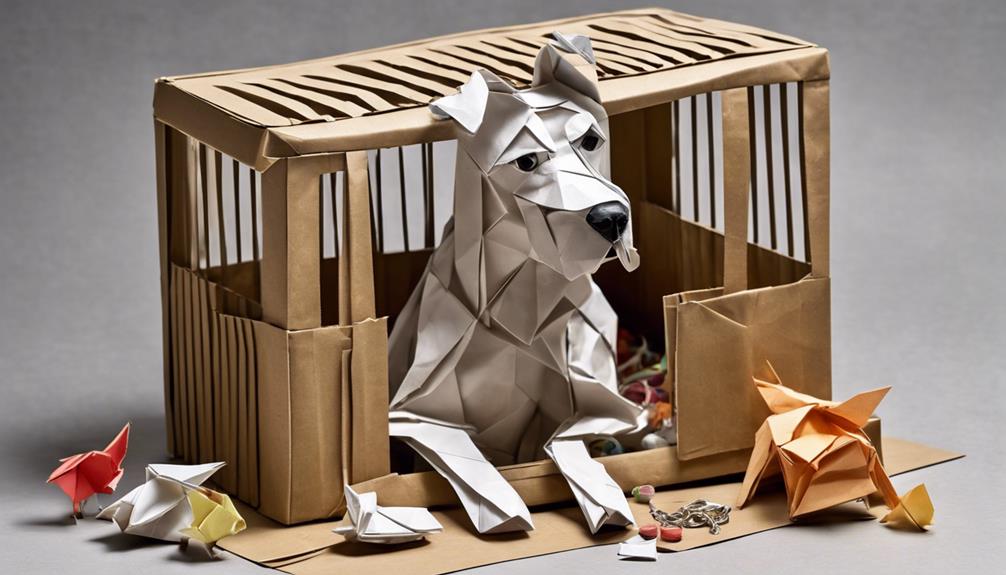As a pet owner struggling with guilt, it’s important to recognize that pet illness outcomes are uncertain, and decisions are made based on diagnostic tests. Dealing with treatment decisions can be emotionally difficult, but self-compassion is essential. Recognize your role, practice forgiveness, and come to terms with the loss of your pet as a part of the human-animal bond. Grieving is a natural process, and seeking support can help with healing. Remembering the positive memories and honoring your pet’s legacy can bring closure. Embracing self-compassion and allowing yourself to heal is key. By acknowledging these truths, you can work through guilt and find comfort in honoring your pet’s memory.
Key Takeaways
- Feeling guilty is common in pet loss; it's a natural response.
- Accept that you did your best for your pet; self-forgiveness is key.
- Seek support from professionals or pet loss groups for healing.
- Reflect on positive memories with your pet to find closure.
- Honor your pet's memory through tributes or rituals for peace.
Understanding Pet Illness
Understanding your pet's illness can be challenging due to the unpredictable nature of veterinary outcomes and the influence of various factors on treatment decisions. Pet illness outcomes are often uncertain, making it difficult for veterinarians to provide definitive prognoses.
Diagnostic tests and experiences play an essential role in decision-making, guiding veterinarians and pet owners in managing the illness effectively. The severity of your pet's condition greatly impacts its prognosis and available treatment options, emphasizing the importance of early detection and intervention.
Veterinarians stress the need for careful monitoring post-surgery to watch for any signs of trouble or potential complications. This proactive approach is vital in ensuring the best possible outcomes for your beloved pet.
Despite the challenges faced by both veterinarians and pet owners in making treatment decisions, staying informed and working closely with your veterinarian can help navigate the uncertainties surrounding your pet's illness.
Coping With Treatment Decisions
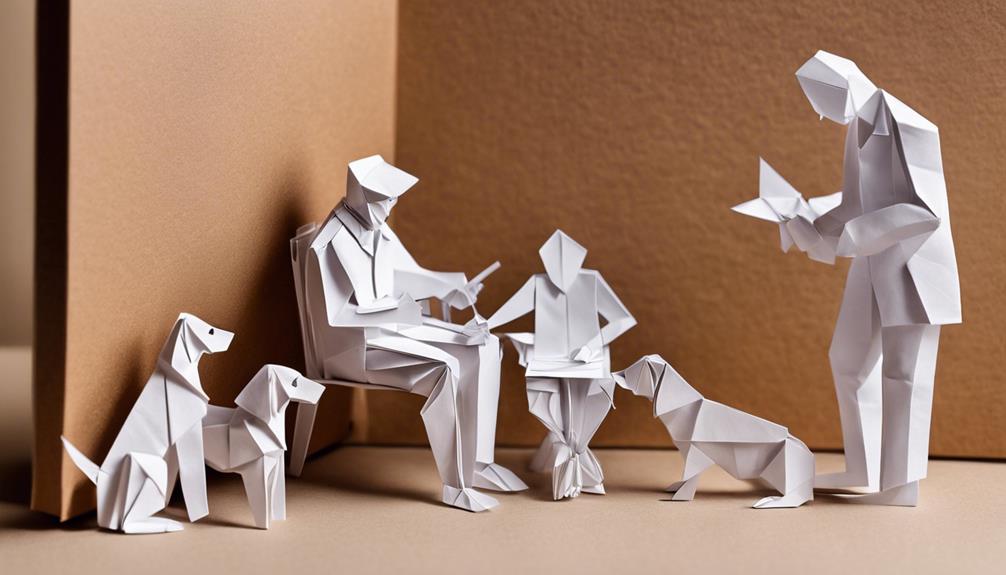
Making treatment decisions for your pet can be emotionally challenging, especially when faced with uncertainties in battling illness and disease. It's common for pet owners to look back and wonder if more could have been done to improve the outcome. Coping with guilt surrounding treatment decisions is a natural response, but it's essential to understand that medicine doesn't hold all the answers.
Moving forward entails learning from these experiences, setting aside guilt, and making decisions based on the information available. Veterinarians and pet owners alike may carry a sense of responsibility when treatment outcomes are unfavorable, despite providing quality care. By acknowledging that some factors are beyond our control, individuals can better cope with feelings of guilt and regret.
Overcoming Regret and Self-Blame
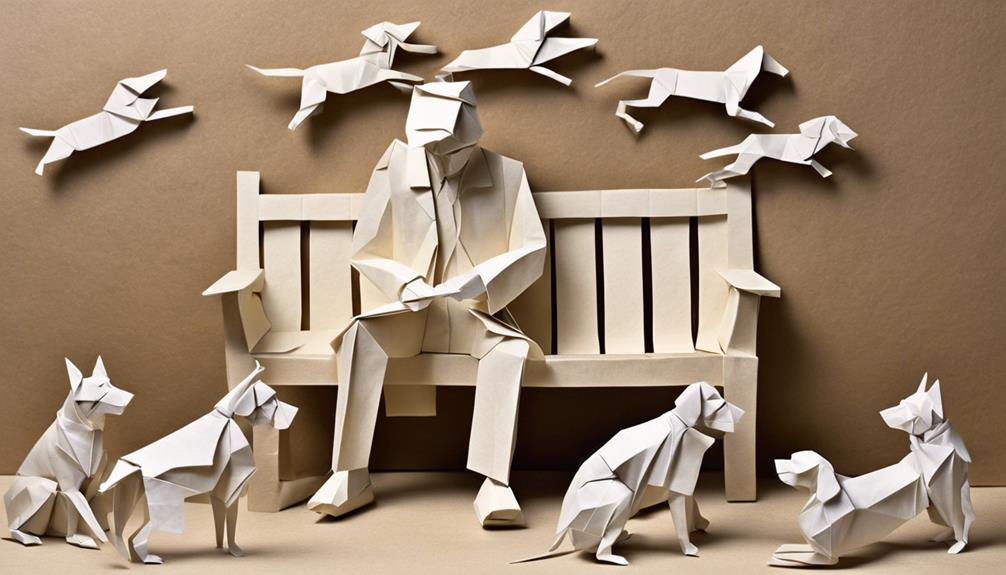
Feeling regret and self-blame as an animal owner is a natural response to challenging situations. Acknowledging these emotions and actively working towards coping mechanisms can help you navigate through this difficult time.
Coping With Guilt
Dealing with guilt as an animal owner involves acknowledging that decisions were made with the information and resources available at the time. Embracing self-compassion and forgiving yourself for any perceived mistakes is crucial. Open communication, especially with your veterinarian, can offer guidance and reassurance during difficult times. Below is a visualization to help you cope with guilt:
| Coping with Guilt | |
|---|---|
| Acknowledge Decision Context | Understand circumstances of past choices |
| Practice Self-Compassion | Be kind to yourself, learn and grow from experiences |
| Engage in Open Communication | Talk to your vet, seek clarity and support |
Moving Forward
To move forward from regret and self-blame as an animal owner, focus on learning and growth rather than dwelling on past mistakes. Embrace the idea that you did the best you could with the resources at hand in caring for your pet.
Seek clarity by asking questions and diligently following the guidance provided by veterinary professionals. Shift your focus away from guilt and regret towards understanding and learning from past experiences.
By practicing self-forgiveness and compassion, you can let go of feelings of blame and guilt surrounding your pet's care or outcomes. It's important to acknowledge and accept pet loss as a natural part of the human-animal bond. This acceptance allows room for healing and personal growth.
Embracing Self-Compassion
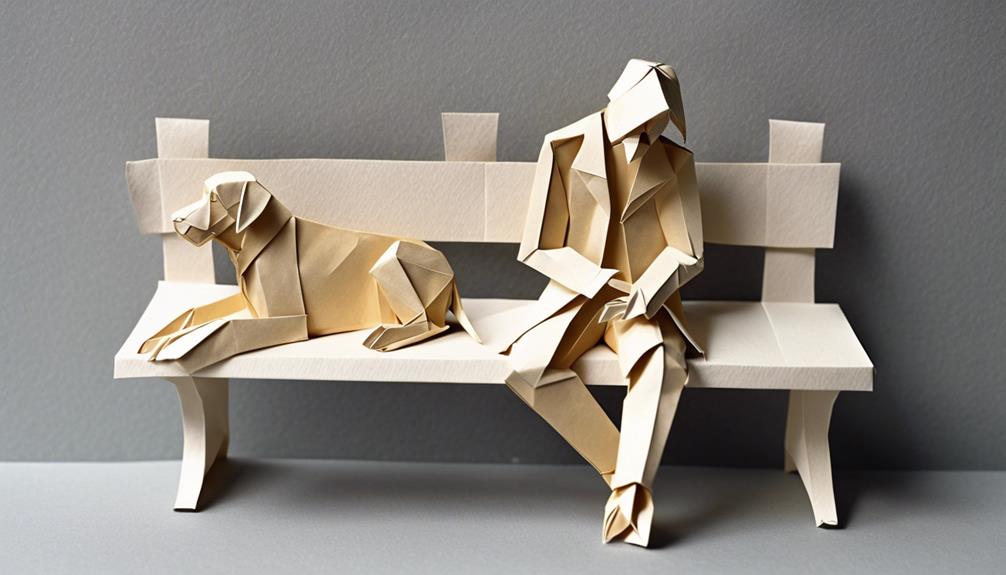
When facing guilt or regret as an animal owner, it's important to embrace self-compassion. By being kind to yourself and understanding your emotions without judgment, you can begin the healing process.
Importance of Forgiveness
Embracing self-compassion is essential for guilty animal owners as it involves acknowledging mistakes with kindness and understanding. Forgiving oneself is a critical step in the journey towards emotional healing and self-compassion. By letting go of self-blame and adopting a forgiving attitude towards oneself, individuals can experience growth and inner peace.
Here are some key points to ponder:
- Forgiving oneself is a powerful tool for promoting emotional healing.
- Self-compassion allows individuals to treat themselves with kindness and understanding.
- Letting go of self-blame is necessary in the process of self-forgiveness.
- Adopting a forgiving attitude towards oneself can alleviate feelings of guilt.
- Practicing self-compassion can lead to improved mental well-being and overall quality of life.
Healing Through Acceptance
Acknowledge and accept your feelings of guilt as a natural part of the healing process by embracing self-compassion. Healing through acceptance involves letting go of self-blame and regrets, focusing on learning from past experiences rather than dwelling on perceived mistakes.
By practicing self-compassion, you treat yourself with kindness and understanding, recognizing that decisions were made based on the information available at the time. Embracing self-compassion can aid in moving forward by encouraging forgiveness towards yourself and fostering understanding and empathy for your emotions.
Self-compassion allows you to recognize that pet loss is inevitable, granting yourself permission to grieve and heal without being engulfed by feelings of guilt and self-doubt. It's a compassionate way to navigate the complex emotions that arise from being an animal owner, providing a pathway to self-forgiveness and growth.
Embrace self-compassion as a tool for healing through acceptance and understanding.
Navigating Pet Loss Grief

Processing and overcoming feelings of guilt and regret is essential in managing the grief of losing a pet. It's natural to question decisions and actions taken during the period of loss, but it's vital to acknowledge and work through these emotions.
Here are some key points to help you navigate pet loss grief effectively:
- Learn from the experience and grow: Understand that every decision made was based on the information available at the time.
- Forgive yourself: Practice self-compassion and understand that you did the best you could for your pet.
- Ask questions and seek clarity: It's important to address any uncertainties you may have about the situation.
- Follow instructions and guidance: Trust in the decisions made and the advice given by professionals.
- Embrace self-forgiveness: Let go of guilt and allow yourself to heal from the loss of your beloved pet.
Moving Forward After Loss

To move forward after the loss of a pet, focus on utilizing the resources available to you and seeking answers to lingering questions. Teach us that during this grieving process, it's important to make the best out of the support systems and guidance offered.
By actively seeking solutions and following recommendations, you can begin the journey towards healing and acceptance. Embrace self-compassion and forgiveness as you navigate through feelings of guilt.
Understand that pet loss is an inevitable part of being a responsible pet owner. Acknowledge the common emotions of regret and questioning if more could have been done, using these experiences as opportunities for growth and healing.
Finding Peace in Memories
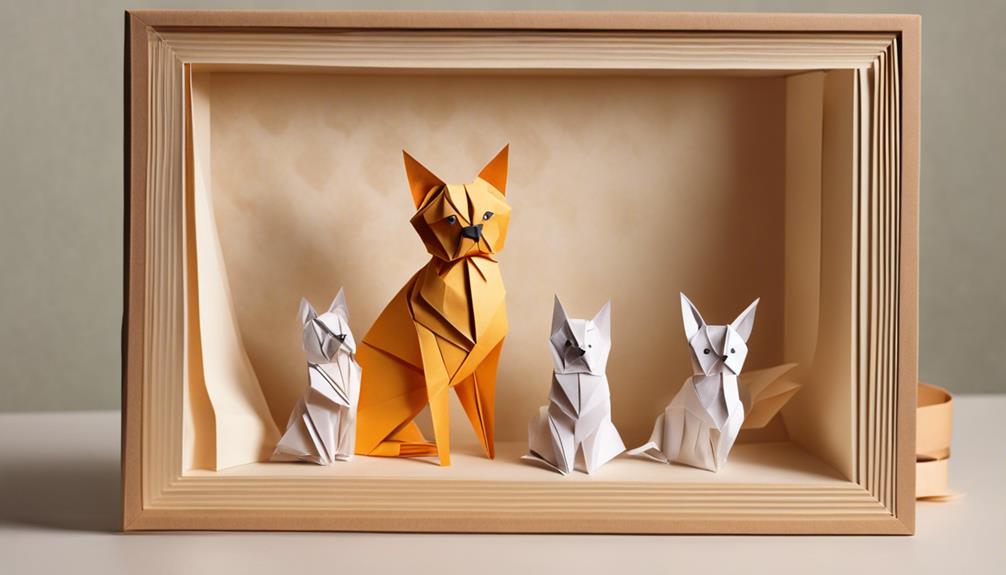
Reflect on the positive memories you shared with your pet to find peace and comfort during the grieving process. Focusing on the joyful moments can help shift your perspective from guilt to gratitude, allowing you to cherish the unique qualities and love you both shared.
Celebrate your pet's life and the happiness they brought into your world as a way to honor their memory and find healing. Embrace the bond you had with your pet, acknowledging the positive impact they had on your life, which can aid in finding peace amidst feelings of guilt.
Frequently Asked Questions
How to Deal With Pet Guilt?
Reflect on past decisions, learn from experiences, and move forward. Wondering if more could have been done is natural, but practicing forgiveness and self-compassion is key. Acknowledge the inevitability of pet loss and focus on doing your best.
What Do Dogs Do When They Are Guilty?
When dogs feel guilty, they may avoid eye contact, cower, or hide. These behaviors are often triggered by your scolding tone rather than their actions. Dogs may display guilt as a learned response to avoid punishment.
What Do 80 of Pet Owners Feel Guilty About?
You feel guilty about not spending enough time with your pet, providing exercise, or affording necessary vet care. The decision to euthanize can bring overwhelming guilt. Remember, your pet values your love and presence.
Is Pet Guilt a Real Thing?
Yes, pet guilt is a real thing. It's common among animal owners, stemming from feelings of responsibility and regret. Processing this emotion involves self-reflection and seeking support to cope with grief effectively.
What should guilty animal owners know about accidents involving their pets?
As an animal owner, understanding the truth about accidents: essential information to be aware of is crucial. Knowing the legal responsibilities and potential consequences in the event of an accident involving your pet is important. It’s vital to be informed and prepared in case such a situation arises.
Conclusion
In the end, it's important to remember that being a pet owner comes with both joys and challenges. Despite any mistakes made, your love and care for your furry companion are what truly matter.
As you navigate the journey of pet illness, treatment decisions, and loss, hold on to the memories that bring you comfort and peace.
Embrace self-compassion, allow yourself to grieve, and seek support when needed. Your pet's love will always be a cherished part of your life.
